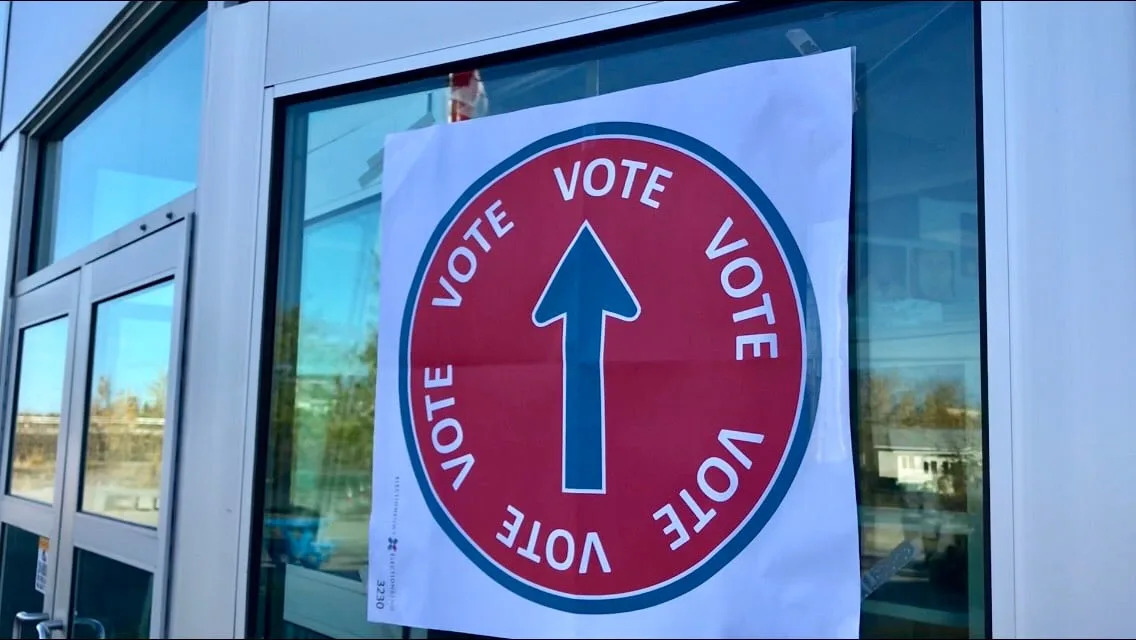N.W.T.'s chief electoral officer wants voting age lowered to 16
CBC
Thu, May 9, 2024

In 2023's N.W.T. territorial election, voters under 30 had the lowest turnout, while voters 60 and older had the highest turnout. Stephen Dunbar, the territory's chief electoral officer, suggests the voting age be lowered from 18 to 16. (Randall McKenzie/CBC - image credit)
The Northwest Territories' chief electoral officer wants to see 16- and 17-year-olds voting during the territory's next election.
It's one of a few recommendations Stephen Dunbar makes to legislators in a recent report looking back at last year's territorial election.
He says lowering the voting age in the N.W.T. from 18 to 16 could be a good way to improve voter turnout among young people in the territory more generally — which he calls "stubbornly low," in the report.
In 2023's territorial election, voters under 30 had the lowest turnout, while voters 60 and older had the highest turnout.
"Voting is habit-forming," Dunbar told CBC in an interview about the report.
"In the jurisdictions where they have lowered the voting age, what they've found is that 16- and 17-year-olds vote at a higher rate than 18- to 24-year-olds… but they're also more likely to vote in the next election, and the one after that."
He says the change would also make it much easier to register young N.W.T. voters, many of whom end up leaving the territory for post-secondary education and can be challenging to reach as a result.
Need to modernize elections act
Dunbar also argues in the report that N.W.T. needs new election legislation.
The current Elections and Plebiscites Act was introduced in 2006, Dunbar said. And while it has been amended since then, he says that those amendments have created inconsistencies in the act.
Dunbar also argues that because a lot of the current legislation is still based on the N.W.T.'s original elections act from 1978, it doesn't take in the realities of the online world.
He says one troubling example related to third-party advertising during elections.
Right now, a third-party advertiser doesn't need to register with Elections N.W.T. until they have spent $500 or more on election advertising. But advertising space on Facebook could go for as little as $40, Dunbar says.
"Someone could be having ads on Facebook and reaching a lot of people for a $40, $50 ad buy," he said.
"It becomes a bit of a wild west situation where you have a lot of money in the system that doesn't meet the threshold but is influencing the outcome."
In the 2023 territorial election, only two parties registered as advertisers: the NWT Disabilities Council and the Union of Northern Workers. Neither spent any money on social media advertising, according to information they filed to Elections N.W.T.
The current rules around absentee voting are also outdated, Dunbar said.
Right now, eligibility for absentee voting ends 10 days before an election, a rule he said was created in 2006 to ensure enough time for ballots to be mailed back to returning officers.
But with much of absentee voting now happening online, he said, the 10-day buffer isn't necessary, and could make absentee voting less accessible.
Another concern he flags in his report is that the current Elections and Plebiscites Act does not mention artificial intelligence technology at all.
No comments:
Post a Comment